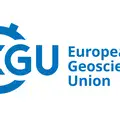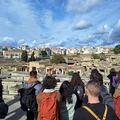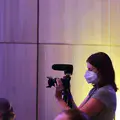
- 1 July 2024
Following the EGU Council vote on the dismissal of Irina Artemieva as President of EGU on 21 May 2024, after careful consideration, and with a return to a more normal functioning, the EGU Council can now provide additional information.
European Geosciences Union
www.egu.eu
Following the EGU Council vote on the dismissal of Irina Artemieva as President of EGU on 21 May 2024, after careful consideration, and with a return to a more normal functioning, the EGU Council can now provide additional information.

The EGU will support the organisation of 16 geoscience conferences and training schools run by EGU members in 2024.

EGU are pleased to welcome Peter van der Beek to the role of Union President, and Marian Holness as Vice-President.

Following a resolution that was made by EGU’s Council, the current EGU President has been dismissed.

The European Geosciences Union (EGU) has begun accepting applications for the 13th edition of its Science Journalism Fellowship competition. The fellowships enable journalists to report, in any European language, on ongoing research in the Earth, planetary or space sciences, with successful applicants receiving up to €5000 to cover expenses related to their projects.

Women make up 50.8% of the world’s population, yet fewer than 30% of the world’s researchers are women. Of this percentage, women of colour comprise around 5%, with less than 1% represented in geoscience faculty positions. Women are published less, paid less, and do not progress as far in their careers as men. Even within our EGU community, women account for only one third of all members, and make up only 32% of the cryosphere division. The divide between women …

When runoff from farmland and urban areas enters our streams and rivers, it carries a heavy load of fertilizers and nutrients. These substances accumulate and flow into our coastal oceans, triggering a series of reactions that can create hypoxic ‘dead zones’. Dead zones are low-oxygen, or hypoxic, areas in the world’s oceans and lakes. Because most organisms need oxygen to live, very few organisms can survive in hypoxic conditions. These zones are areas on the sea floor where oxygen levels …

Have you ever thought about convening an EGU session instead of just attending them? Until September 9th you have the chance to do just that for the 2025 General Assembly, which will be taking place from April 27 to May 2 in Vienna, Austria. Convening a session can sound a bit intimidating, especially if you’ve never done it before or if you are an early career scientist. However, it’s an incredibly enriching experience and well worth the effort. Here is …